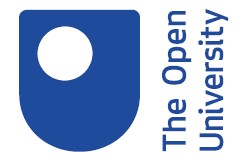Research at The Open University which has helped to develop mass spectrometers used to monitor space environments will now be used to analyse food waste powders.
The project will be funded by a grant from the £5 million SPRINT (SPace Research and Innovation Network for Technology) programme. SPRINT is a national programme helping businesses through the commercial exploitation of space data and technologies, to provide unprecedented access to university space expertise and facilities. The OU is working with Nutrapharma, a Lincoln-based SME, to develop novel powder products for the nutraceutical sector.
Turning food waste into premium products
Nutraceuticals are any substance that is a food or part of a food and provides medical or health benefits. Nutrapharma believes that focusing on previously discarded, but nutritionally valuable, products can boost food sustainability by developing new, premium products, rich in fibre, nutrients and nutraceuticals, for food and food ingredient companies.
Nutrapharma is working with the OU to identify specific compounds present in powders generated from food waste. This will enable the company to be the first to market in the nutraceutical sector to apply this process to local produce.
Space spectrometry adapted to analyse food waste
The OU is providing Nutrapharma with laboratory facilities and expertise to conduct these processes. These include laboratory assay development and novel analytical methods, using the OU’s portfolio of gas chromatography-mass spectrometry (GC-MS), comprehensive gas chromatography-mass spectrometry (GCXGC-MS) and liquid chromatography -mass spectrometry (LC-MS) systems. These spectrometers are usually used to “sniff” space environments for gases and will now be adapted to assess the feasibility of turning food waste into new premium products.









